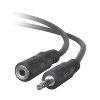MCK45ACP
Member
De capping gizzy
DE-CAPPING GIZZY
________________________________________
I don’t always de-cap my brass prior to tumbling but when I get a batch of mil or once fired I like to know what I’m starting out with. Here is a Gizzy I came up with to speed things up a little. I modified an old RCBS RSII press that I had kicking around.

I found a solenoid online from a salvage site. Bought a Bimba 011 air cylinder, a limit switch, a on and off switch and box, RCBS Power Punch de-capping punch and the rest of the stuff I had. (Yeah I’m a packrat)
It works the same if you set a press up to just de-cap brass, the difference is it auto ejects the brass, saving me time and tired shoulders.
1. Load the case and pull the handle. The spring loaded de-capper punch spits the primer into the PVC tube and down to the scrap bin.

2. Raise the handle until it reaches the soft stop. I used a spring plunger for this. Then push slightly forward to activate the limit switch and air solenoid. Just like priming a case on a Dillon.
3. Then pffft the cylinder ejects the de-capped case into the storage bin.



I also use the Gizzy to swage primer pockets using the RCBS swaging set.
DE-CAPPING GIZZY
________________________________________
I don’t always de-cap my brass prior to tumbling but when I get a batch of mil or once fired I like to know what I’m starting out with. Here is a Gizzy I came up with to speed things up a little. I modified an old RCBS RSII press that I had kicking around.

I found a solenoid online from a salvage site. Bought a Bimba 011 air cylinder, a limit switch, a on and off switch and box, RCBS Power Punch de-capping punch and the rest of the stuff I had. (Yeah I’m a packrat)
It works the same if you set a press up to just de-cap brass, the difference is it auto ejects the brass, saving me time and tired shoulders.
1. Load the case and pull the handle. The spring loaded de-capper punch spits the primer into the PVC tube and down to the scrap bin.

2. Raise the handle until it reaches the soft stop. I used a spring plunger for this. Then push slightly forward to activate the limit switch and air solenoid. Just like priming a case on a Dillon.
3. Then pffft the cylinder ejects the de-capped case into the storage bin.



I also use the Gizzy to swage primer pockets using the RCBS swaging set.







